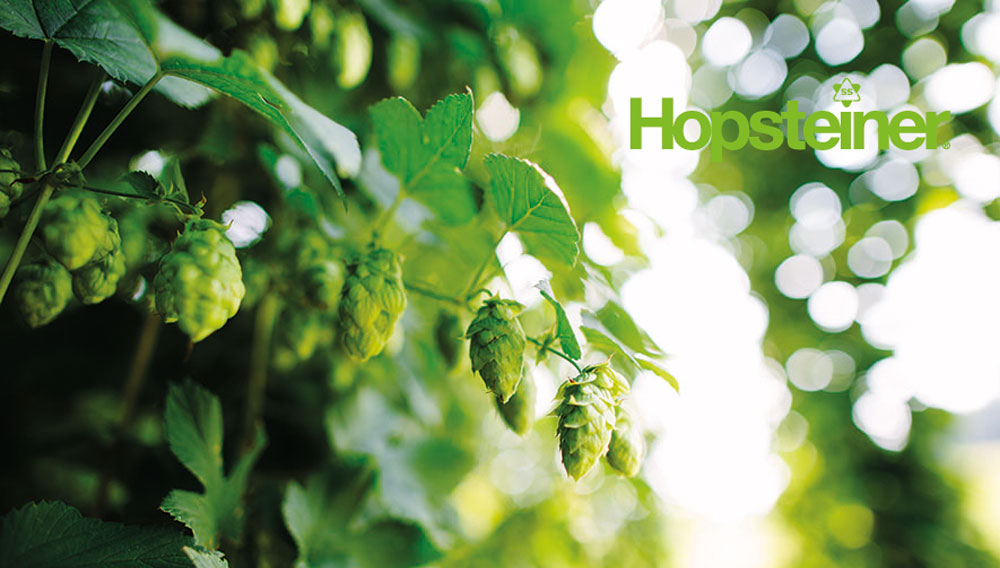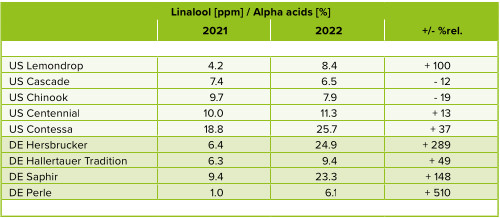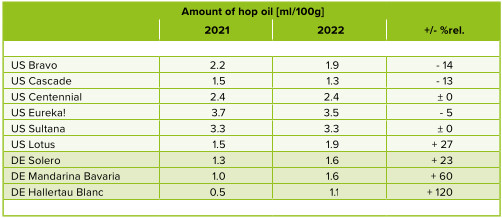Variations in hop aroma depending on crop year
Technical Support | As usual at the turn of the year, we’d like to share some averaged data on the recent and previous crop year’s composition of aroma substances of some selected hop varieties. This comparison is intended as a helpful indication to achieve consistent hop aroma in beer, especially when changing from one crop year to another.
Late Hopping
Based on the addition of the same quantity of bitter substances towards the end of boil, the resulting late hop flavour might vary. Linalool is assessed as the key indicator for late hop aroma in beer. Hence, the ratio of linalool to alpha acids can be used to evaluate and adjust the aroma intensity (more info on this issue).
For the shown varieties which like to be used in late hopping, fluctuations of hop aroma intensity by using crop 2022 pellets are hardly expected for US Cascade and Centennial. The usage of Chinook might result in little less aroma at the same dosage rates, whereas Contessa and especially Lemondrop are more intense. The partly extremely higher linalool input of German aroma varieties (e.g. more than 5 times in case of Perle) is caused by the very low alpha acid yields in crop 2022. To add the same amount of bitter substances by using 2022 crop pellets, more hops have to be added, resulting in more intense aroma impressions if hopping recipe and dosing point remains the same. It goes without saying that the use of our hop oils with a standardized composition avoids the worry of annual variations.
Dry hopping
Figure 2 shows the hop oil content of some hop varieties that are regularly used for dry hopping.
Dry hopping is often based on the total amount of hop oils and not on single components, as is the case for late hopping mentioned above. Shown US varieties except Lotus (+ 27 %) have no to marginal hop oil variations. All mentioned dry hopping varieties from Germany can be expected to have more flavour contribution once switching from 2021 to pellets from crop 2022. Hallertau Blanc in particular contains much more hop oils in 2022, so recipe adjustments may be necessary.
If you would like to learn more about the current data of your hop varieties, please do not hesitate to contact us.



